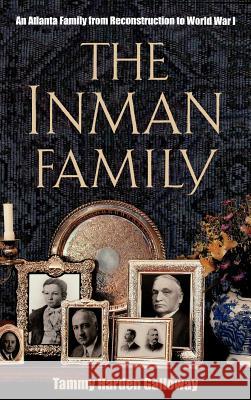The Inmans: An Atlanta Family » książka
The Inmans: An Atlanta Family
ISBN-13: 9780865547551 / Angielski / Twarda / 2002 / 196 str.
In late nineteenth-century Atlanta, a group of enterprising businessmen worked their way into the elite circles, taking advantage of the disruption of society caused by the Civil War. The Inman family were planters who lost their farms in the war and came to Atlanta to start over. In time, they became successful leaders in business and city government. Their success in the economic arena made possible access to prominent cultural, social, and political positions through which they helped influence and shape Atlanta's growth.
Being of the plantation class of eastern Tennessee, the Civil War changed the status of members of the Inman family. Shadrach W. Inman is an example of plantation owners across the southeast who, having lost their previous way of living and their wealth, turned to business. His brothers, William H. Inman and Walker P. Inman, were businessmen who returned to their lines of business following the war. Samuel M. Inman and John H. Inman, the two eldest sons of Shadrach, were Confederate soldiers that become two of the wealthiest men on the East Coast. Hugh T. Inman, youngest son of Shadrach, worked among the various family businesses with his father, uncles, and brothers, founding related businesses of his own. As a family unit, they were one of the most influential in Atlanta and in the South during the period. Their connections with other businessmen whom they knew from before the war and their prewar experience in merchandising and plantation management led to their becoming part of the elite in the New South. These connections are the central key to the success of the numerous Inman family business ventures: cotton, railroads, streetcars, insurance, banking, andreal estate. The Inmans' ability to build a number of successful companies led to their becoming prominent in the New South society with political influence and positions, Atlanta and Southern boosterism, which in turn led to various areas of philanthropy including area education, an orphanage, and the hospital.
In this engaging and compelling story, Tammy Galloway writes of one of Atlanta's -- and the New South's -- most important families from Reconstruction through the first half of the 20th century.











